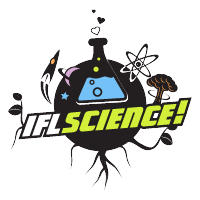Media Watch
Researchers Create Carbon Nanostructure Stronger Than Diamond
IFL Science -
"Scientists have predicted that nanolattices arranged in a plate-based design would be incredibly strong," lead author Cameron Crook, a UCI graduate student in materials science & engineering, said in a statement. "But the difficulty in manufacturing structures this way meant that the theory was never proven, until we succeeded in doing it." Read Now
He was building rockets. Now he's taking on America's ventilator shortage
CNN -
As the coronavirus outbreak spread into the United States, Dr. Brian Wong, a plastic surgeon at the University of California, Irvine Medical Center, wanted to know what doctors on the front lines could do if they ran out of ventilators. In March, Wong organized daily conference calls on Zoom to brainstorm ideas with a couple of his colleagues, and they adopted the name Bridge Ventilator Consortium. Soon, medical professionals from all over the country began dialing in. … "I was amazed." Dr. Govind Rajan, an anesthesiologist at UCI, said. "They took all these ideas, synthesized them and they put it together very fast — which is what is critical right now." Read More
“Stronger Than Diamonds” Carbon Nanostructure Designed – Reaches Theoretical Limit of Performance
Science Tech Daily -
“Scientists have predicted that nanolattices arranged in a plate-based design would be incredibly strong,” said lead author Cameron Crook, a UCI graduate student in materials science & engineering. “But the difficulty in manufacturing structures this way meant that the theory was never proven, until we succeeded in doing it.” Read More
New plate-nanolattices are stronger than diamonds
Futurity -
“Previous beam-based designs, while of great interest, had not been so efficient in terms of mechanical properties,” says corresponding author Jens Bauer, a researcher in mechanical and aerospace engineering at the University of California, Irvine. “This new class of plate-nanolattices that we’ve created is dramatically stronger and stiffer than the best beam-nanolattices.” Read More
Scientists design a carbon nanostructure stronger than diamonds
SlashGear -
Scientists from the University of California, Irvine, and other institutions have announced that they have architecturally designed plate-nanolattices, which are nanometer-sized carbon structures. The team says that the structures are stronger than diamonds as a ratio of strength to density. The scientists reported their success in conceptualizing and fabricating a material, consisting of closely connected, close-cell plates instead of the common cylindrical trusses common in such structures. Read More
Nanoscale carbon lattice proven to be stronger than diamonds
New Atlas -
A team at University of California, Irvine (UCI) has now created a nanoscale carbon lattice that boasts a much greater strength-to-density ratio than diamonds. … “While the theoretical performance of these structures had been predicted before, we were the first group to experimentally validate that they could perform as well as predicted, while also demonstrating an architected material of unprecedented mechanical performance," says Lorenzo Valdevit, UCI professor of materials science & engineering. Read More
Coronavirus: Companies ramp up production of ventilators for hospitals. But will they be needed?
Los Angeles Daily News -
Long Beach-based Virgin Orbit said in March it will develop a prototype for a “bridge ventilator” designed to assist patients until they are placed on medical ventilators. The company is expecting federal approval before launching mass production of the product, developed in collaboration with researchers at the University of California, Irvine. Read More
Team designs carbon nanostructure stronger than diamonds
Phy.org -
"Previous beam-based designs, while of great interest, had not been so efficient in terms of mechanical properties," said corresponding author Jens Bauer, a UCI researcher in mechanical & aerospace engineering. "This new class of plate-nanolattices that we've created is dramatically stronger and stiffer than the best beam-nanolattices." Read More
UCI Pools Resources For COVID-19 Efforts
Orange County Business Journal -
“We have many research groups working on COVID-19 efforts, and some groups that have been working on these issues before the pandemic arrived,” UCI Vice Chancellor of Research Pramod Khargonekar told the Business Journal. … It’s not just research, officials stress. The school’s tech transfer branch has been active in translating ideas born out of the university into viable commercial products and resources. … “The entire university has mobilized in service of our community at this moment of great need,” [UCI Chancellor Howard] Gillman said. Below is a roundup of some of the recent activity at UCI. [Subscription required, you can request an electronic copy of the article by sending an email to communications@uci.edu.] Read More
3D printers to the rescue
Thousand Oaks Acorn -
Kevin Mardirossian has used his 3D printers to make a lot of things …. The mechanical engineering student at UC Irvine spent his spring break printing dozens of frames for face shields then teamed up with a Ventura man who produced the shields’ visors from clear plastic sheets. This month, the Conejo Valley native and his partner donated 70 face shields to the Ventura County Department of Public Health …. Because he’s lucky enough to own his own 3D printers, he felt obligated to use them for good, Mardirossian said. “I have the means to help people,” he said. “I couldn’t imagine doing anything else.” Read More










